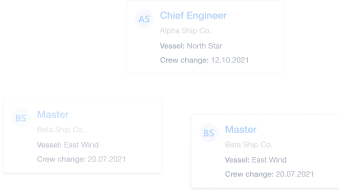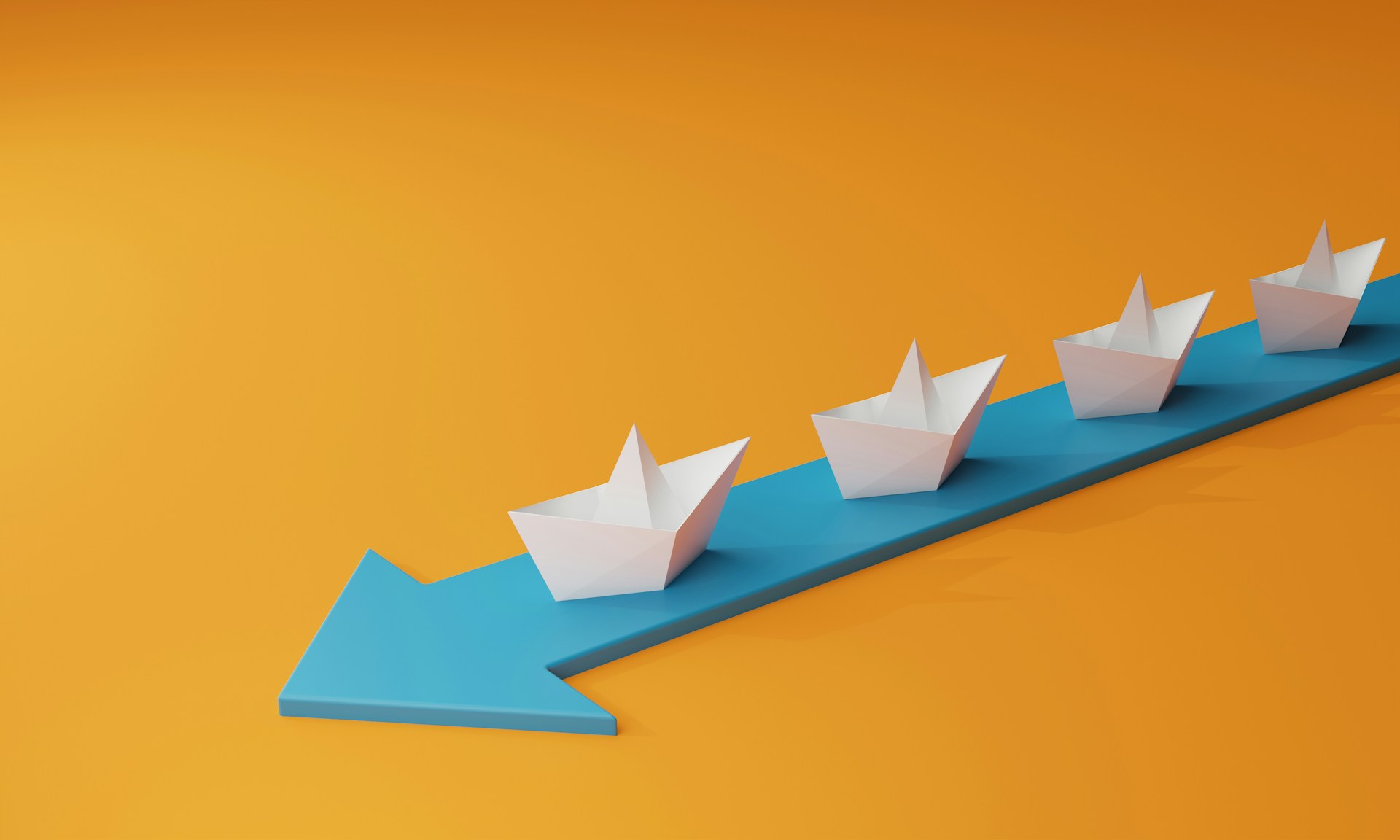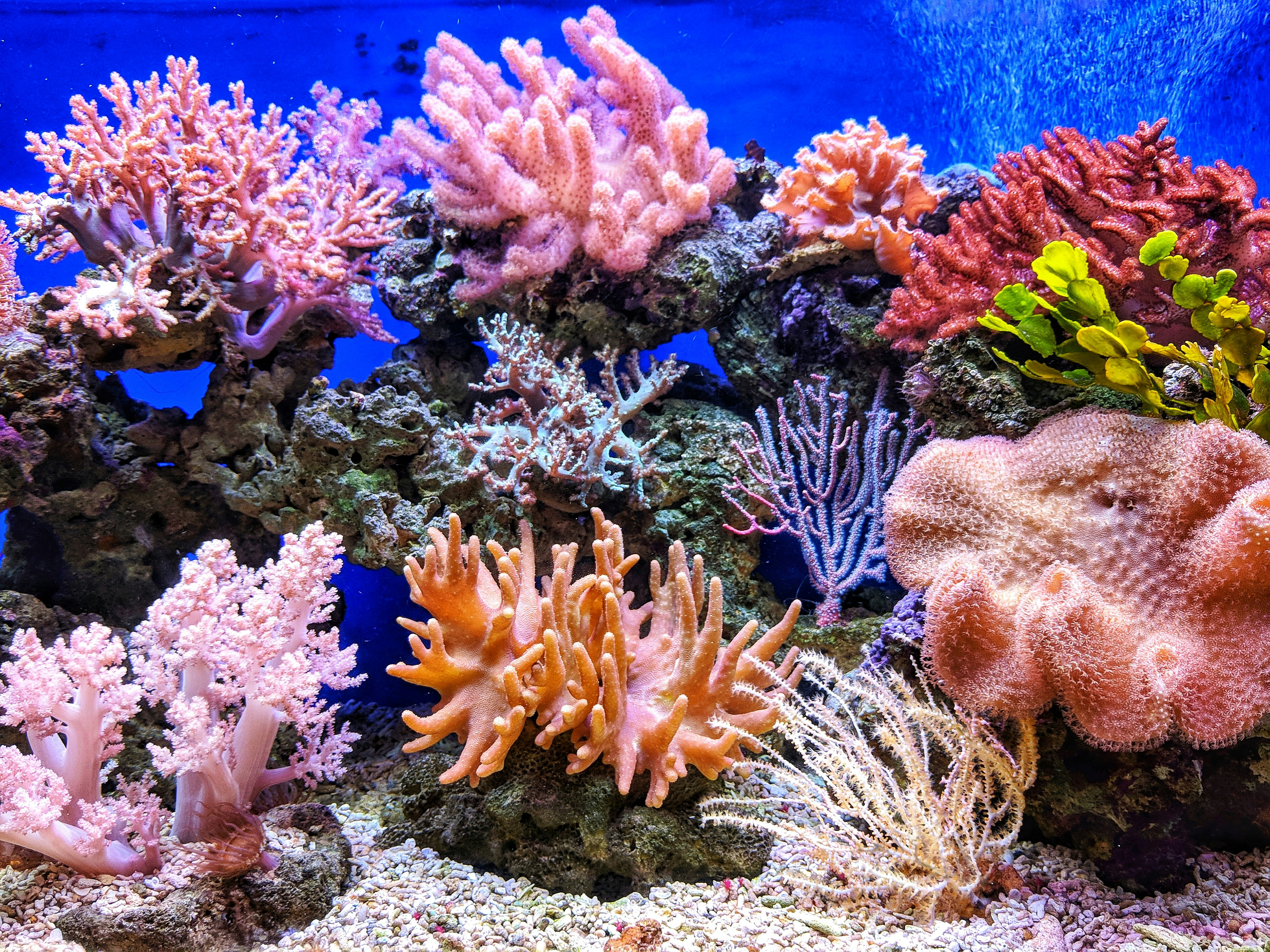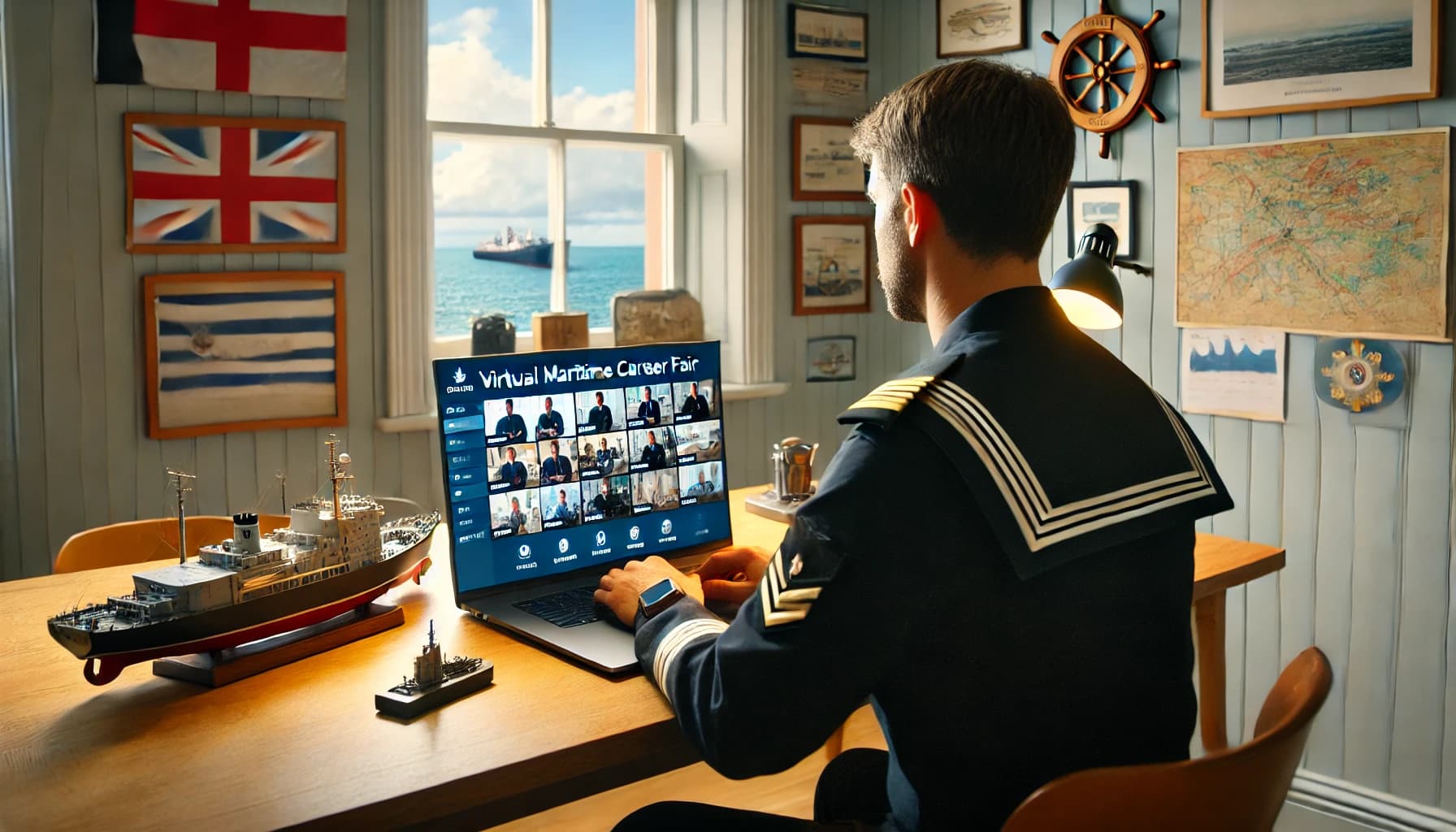What is the Definition of Maritime in 2025?
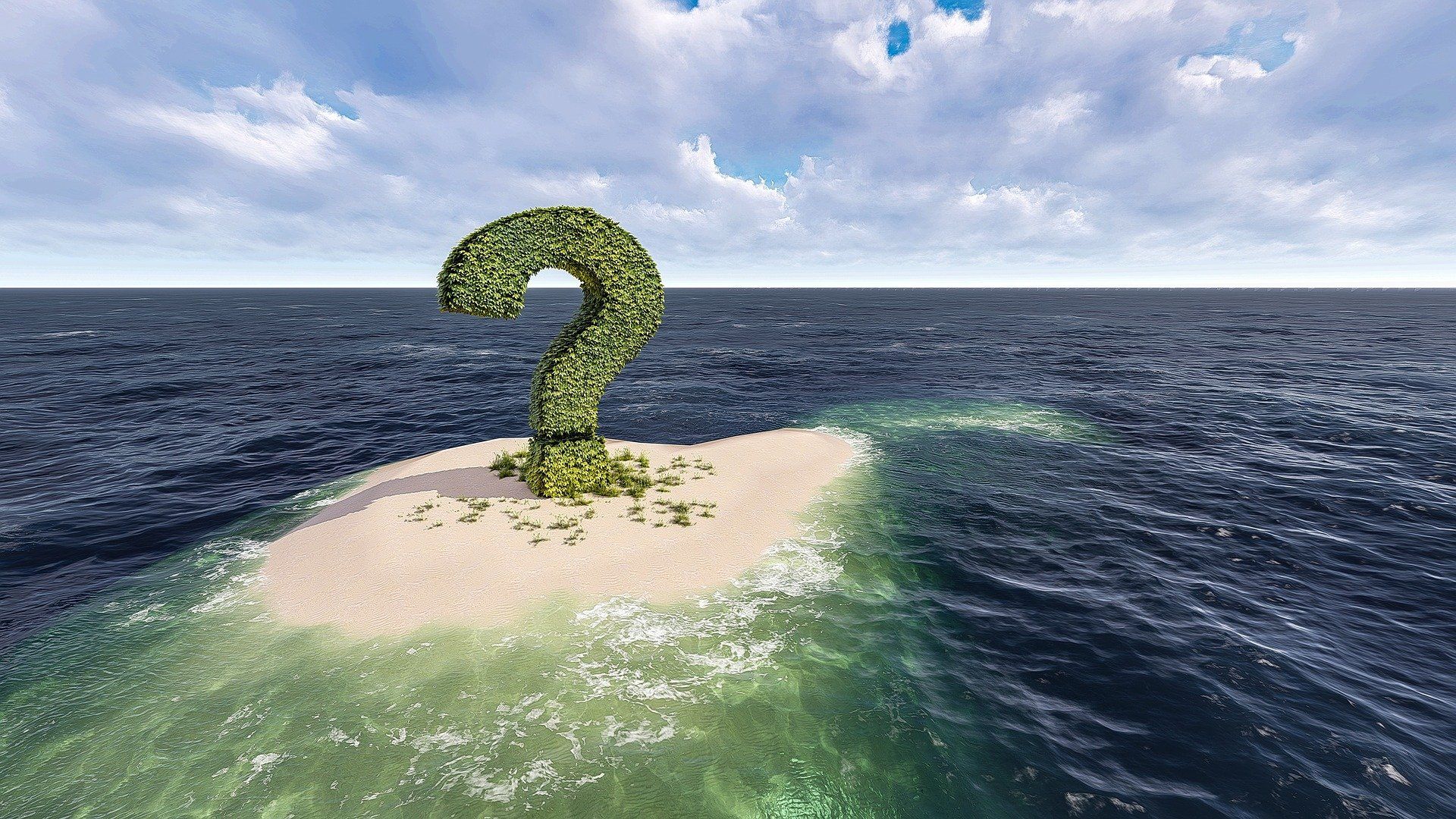
The maritime industry, a cornerstone of global trade and connectivity, continues to evolve rapidly. While the term "maritime" traditionally conjures images of shipping vessels and naval fleets, its modern meaning stretches far beyond these conventional associations. In 2025, maritime reflects a dynamic and tech-driven industry navigating environmental, logistical, and geopolitical challenges.
This updated guide explores the current definition of maritime, the trends shaping its future, and how Martide supports industry stakeholders in adapting to a changing seascape.
Understanding Maritime: A Modern Perspective
At its core, maritime refers to anything related to the sea, shipping, and navigation. Historically, it encompassed:
- Commercial shipping: Transporting goods and people by sea.
- Naval operations: Military activities on water.
- Maritime law: Legal practices governing sea-based activities.
- Port and harbor management: Infrastructure supporting maritime operations.
In 2025, this definition expands to include:
- Autonomous and remotely-operated vessels
- Digital logistics and AI-powered fleet management
- Sustainability efforts and decarbonization initiatives
- Marine data analytics and real-time monitoring
- Crew well-being, training, and connectivity solutions
These developments signal a shift toward a smarter, greener, and more connected maritime industry.
Read more: How to Look After Employee & Crew Mental Wellbeing
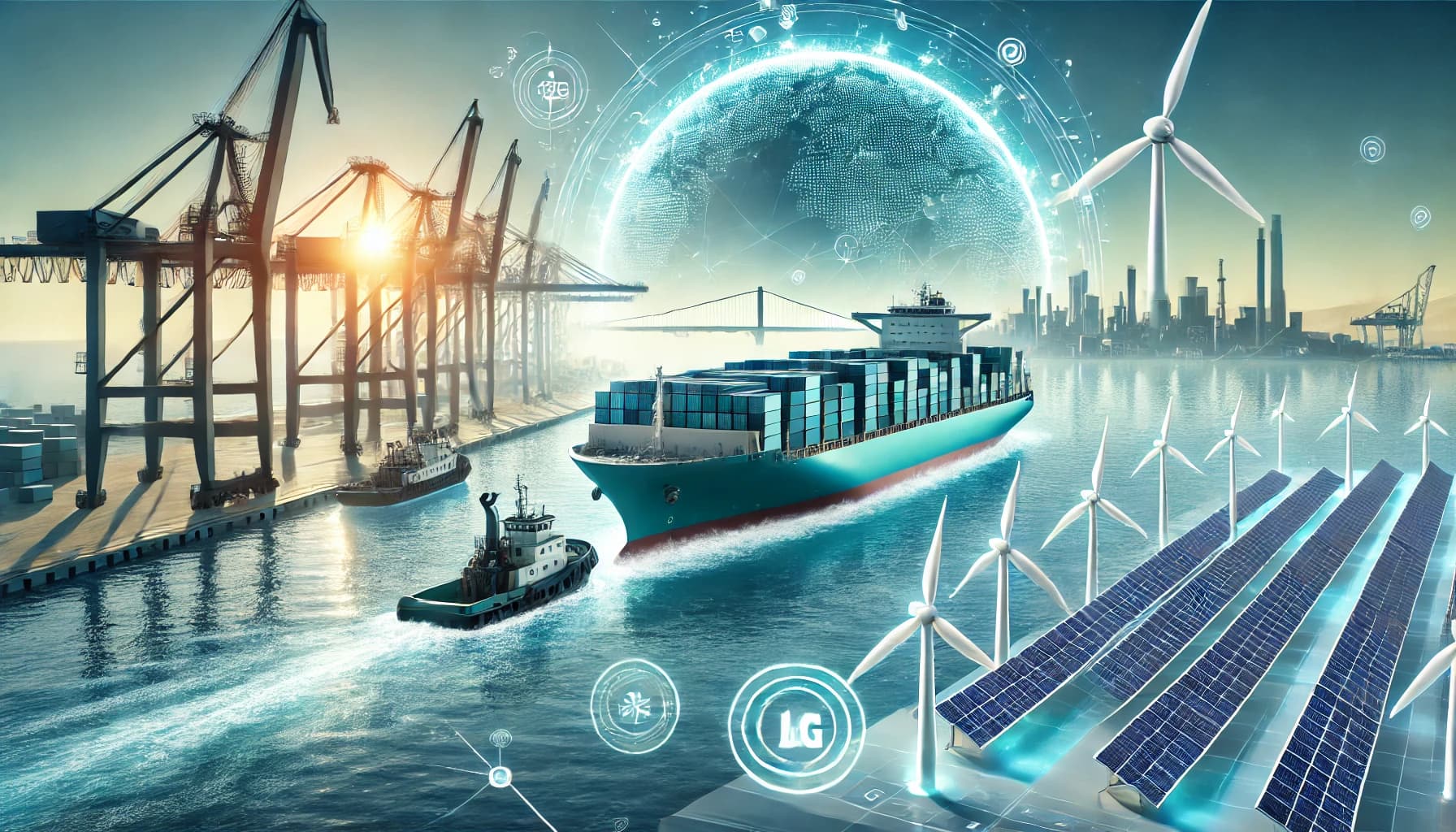
A Brief History of Maritime
The term "maritime" derives from the Latin maritimus, meaning "of the sea." For centuries, maritime pursuits shaped exploration, commerce, and even warfare. The Age of Sail in the 16th to 19th centuries saw the rise of global maritime empires, while the industrial era brought about steamships and global trade networks.
Today, maritime is no longer solely about navigating oceans—it’s about navigating complex systems involving technology, people, regulations, and the environment.
Key Trends Shaping Maritime in 2025
1. Sustainability and Green Shipping
With global climate targets looming, the maritime industry is under increasing pressure to decarbonize. Key initiatives include:
- Alternative fuels: Widespread adoption of LNG, biofuels, methanol, and ammonia.
- Wind-assisted propulsion: Rotor sails and kite systems are making a comeback to reduce fuel dependency.
- IMO 2030 goals: Shipping companies are aligning with the International Maritime Organization’s carbon intensity reduction targets.
- Shore power: Ports are enabling vessels to plug in and cut emissions while docked.
These efforts aim to balance profitability with environmental responsibility.
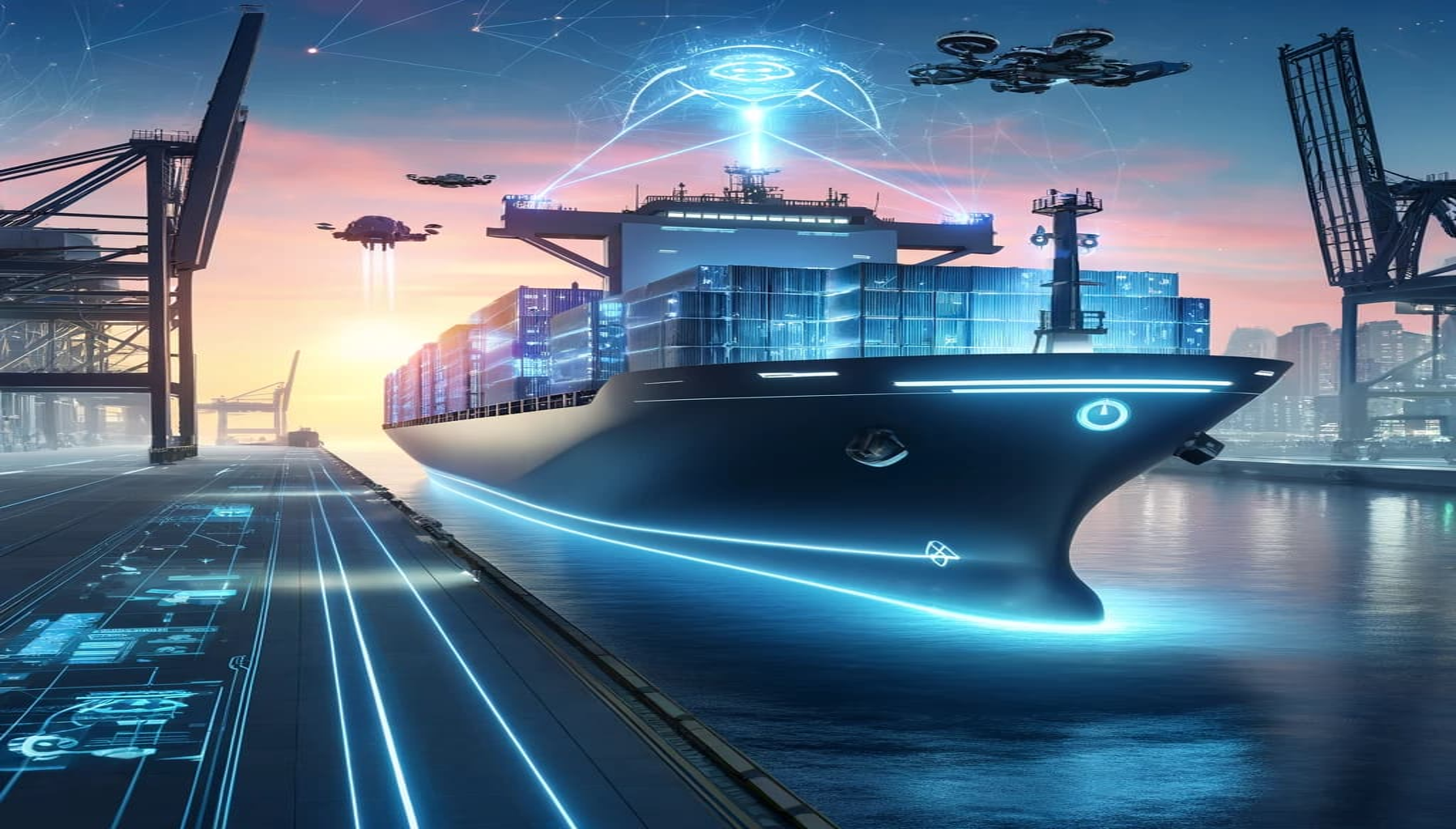
2. Digital Transformation
Technology continues to reshape every link in the maritime supply chain:
- IoT devices monitor cargo conditions, engine performance, and fuel consumption in real time.
- AI and machine learning optimize voyage planning, predict maintenance issues, and reduce human error.
- Blockchainis being trialed to secure transactions and provide transparent tracking across stakeholders.
- Digital twins are now used to simulate vessel performance and port operations, enabling better planning.
This wave of digital innovation enhances both efficiency and resilience.
Read more: 7 Benefits of the Internet of Things in the Maritime Industry
3. Autonomous and Remote Shipping
Autonomous vessels are transitioning from concept to reality:
- Uncrewed ships are conducting short-distance cargo runs in test markets.
- Remote operation centers allow shore-based teams to manage vessel systems.
- Regulatory bodies, including the IMO and national authorities, are creating guidelines to ensure safe deployment.
While full autonomy remains on the horizon, semi-autonomous features are becoming commonplace, improving navigational safety and operational uptime.
4. Crew Welfare and Development
Despite automation, people remain at the heart of maritime. In 2025, there's growing recognition of the need to improve the lives of seafarers:
- Mental health support programs are more prevalent, driven by lessons from the COVID-19 pandemic.
- VR-based training provides immersive learning for emergency response and equipment handling.
- Improved connectivity helps seafarers stay in touch with family and access entertainment at sea.
- Diverse recruitment is on the rise, with more women and underrepresented groups entering the industry.
Retaining talent in an increasingly demanding industry is critical.
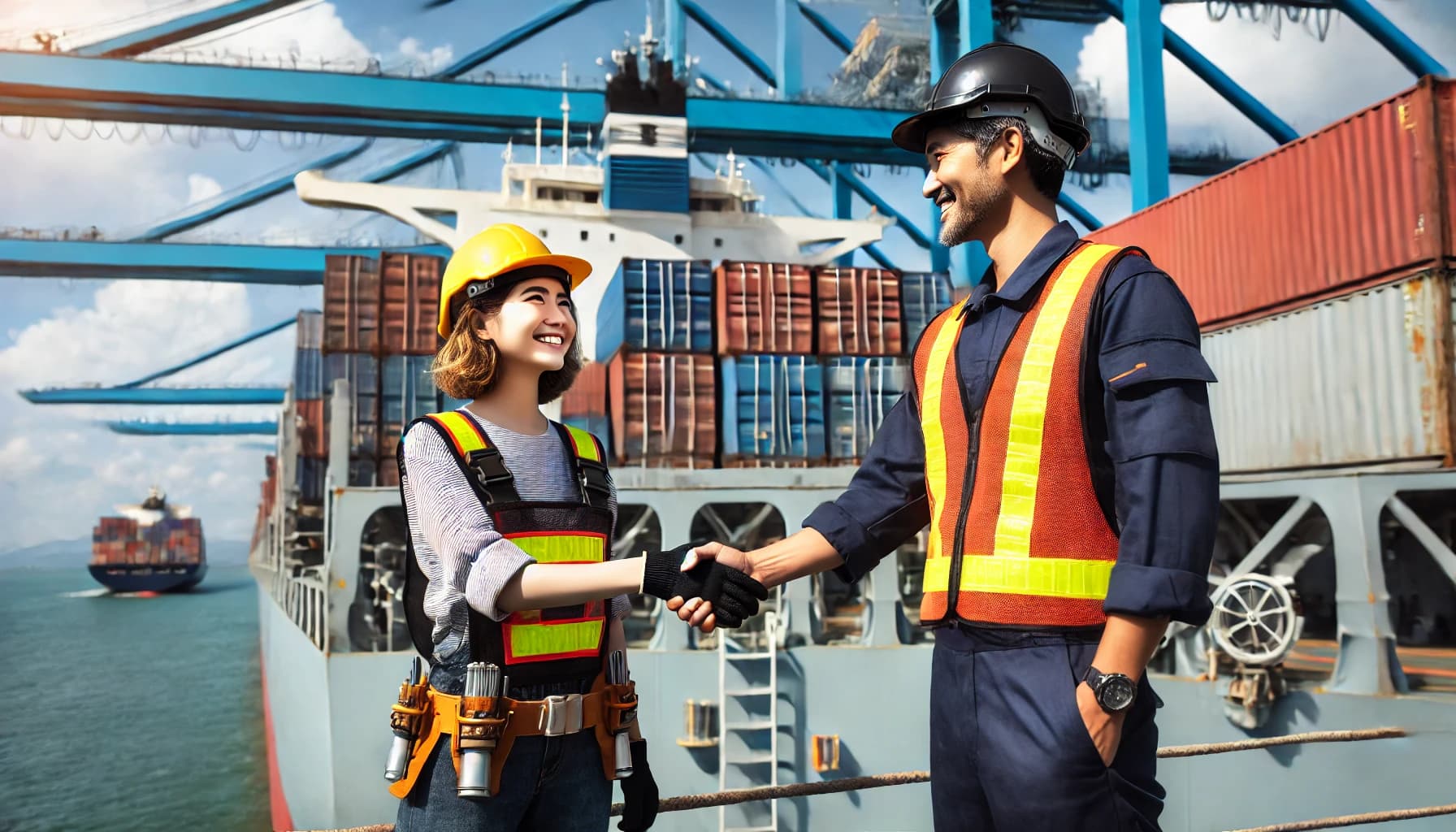
5. Smart Ports and Integrated Logistics
Ports are evolving into smart hubs powered by data and automation:
- AI-powered container handling reduces turnaround time and labor costs.
- Digital customs and clearance systems accelerate logistics workflows.
- Integrated supply chain platforms allow real-time cargo tracking from ship to shelf.
Smart port initiatives not only improve efficiency but also enhance the sector’s resilience in times of disruption.
Emerging Challenges in the Maritime Sector
While progress is promising, several obstacles persist:
- Workforce shortages: The demand for skilled officers and ratings still outpaces supply.
- Cybersecurity risks: Increased digital reliance makes fleets vulnerable to ransomware and cyberattacks.
- Geopolitical instability: Conflicts, sanctions, and shifting trade alliances affect route planning and insurance premiums.
- Regulatory complexity: Vessels must navigate varying compliance requirements across jurisdictions.
Solving these challenges requires coordinated action across the public and private sectors.
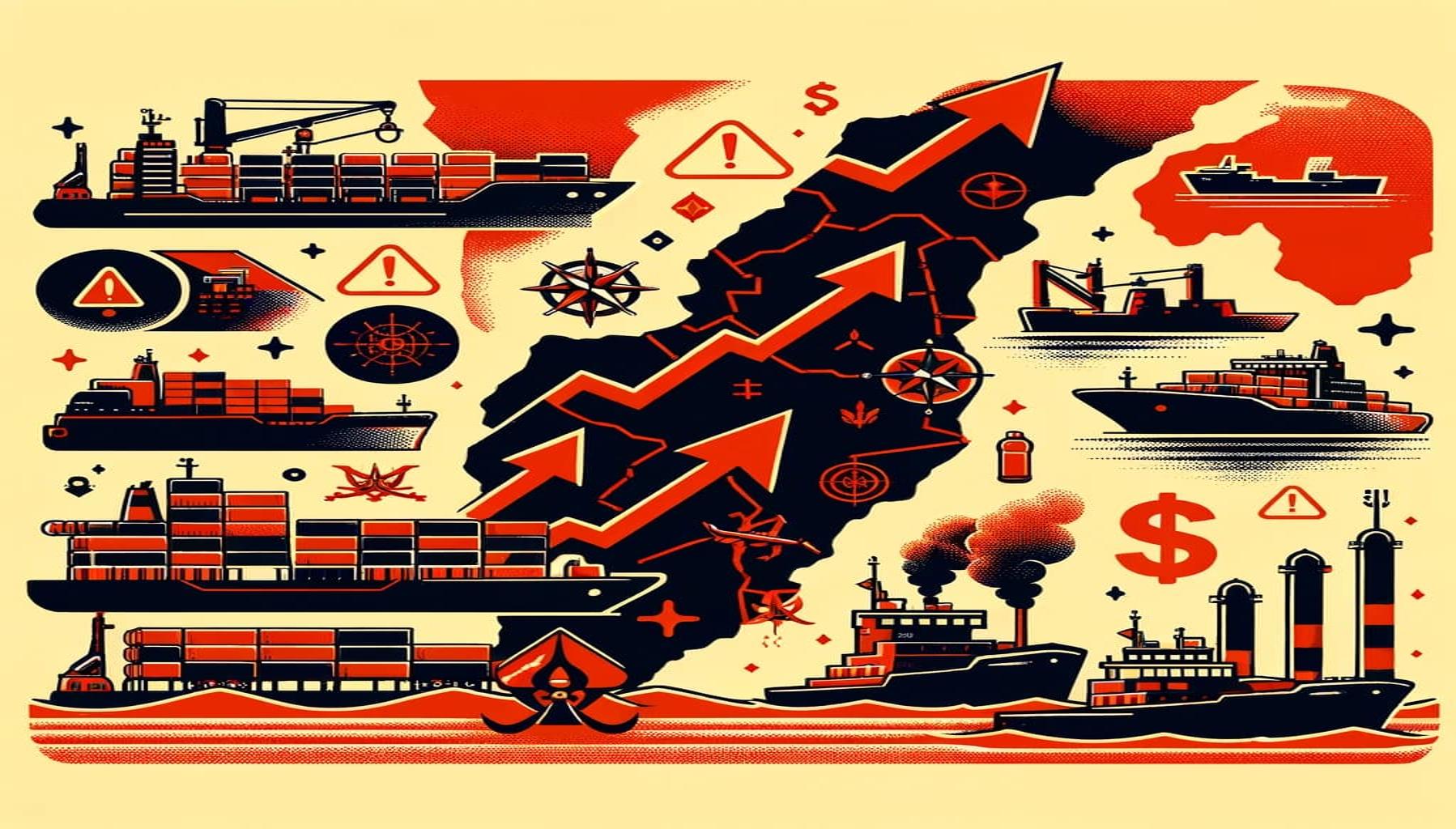
How Martide Supports the Maritime Industry
Martide’s cloud-based recruitment and crew management platform is built to meet the needs of today’s maritime professionals. Whether you're a shipowner, crew manager, or seafarer, Martide helps you stay competitive in a digital-first world.
For Shipowners and Crew Managers
Martide simplifies operations by offering:
- A centralized applicant tracking system (ATS) to manage hiring from one dashboard.
- Automated document and compliance checks, reducing manual workload.
- Integration with your existing systems, ensuring a smooth transition.
You’ll save time and reduce turnover with smarter, more transparent recruitment.
For Seafarers
Martide empowers seafarers to take control of their careers:
- Create and manage profiles easily via desktop or mobile app.
- Apply for jobs with reputable employers worldwide.
- Track application status and receive notifications on-the-go.
The platform also promotes career development and smoother onboarding processes—essential for long-term crew satisfaction.
Read more:How to Keep Track of the Seafarer Jobs You've Applied For
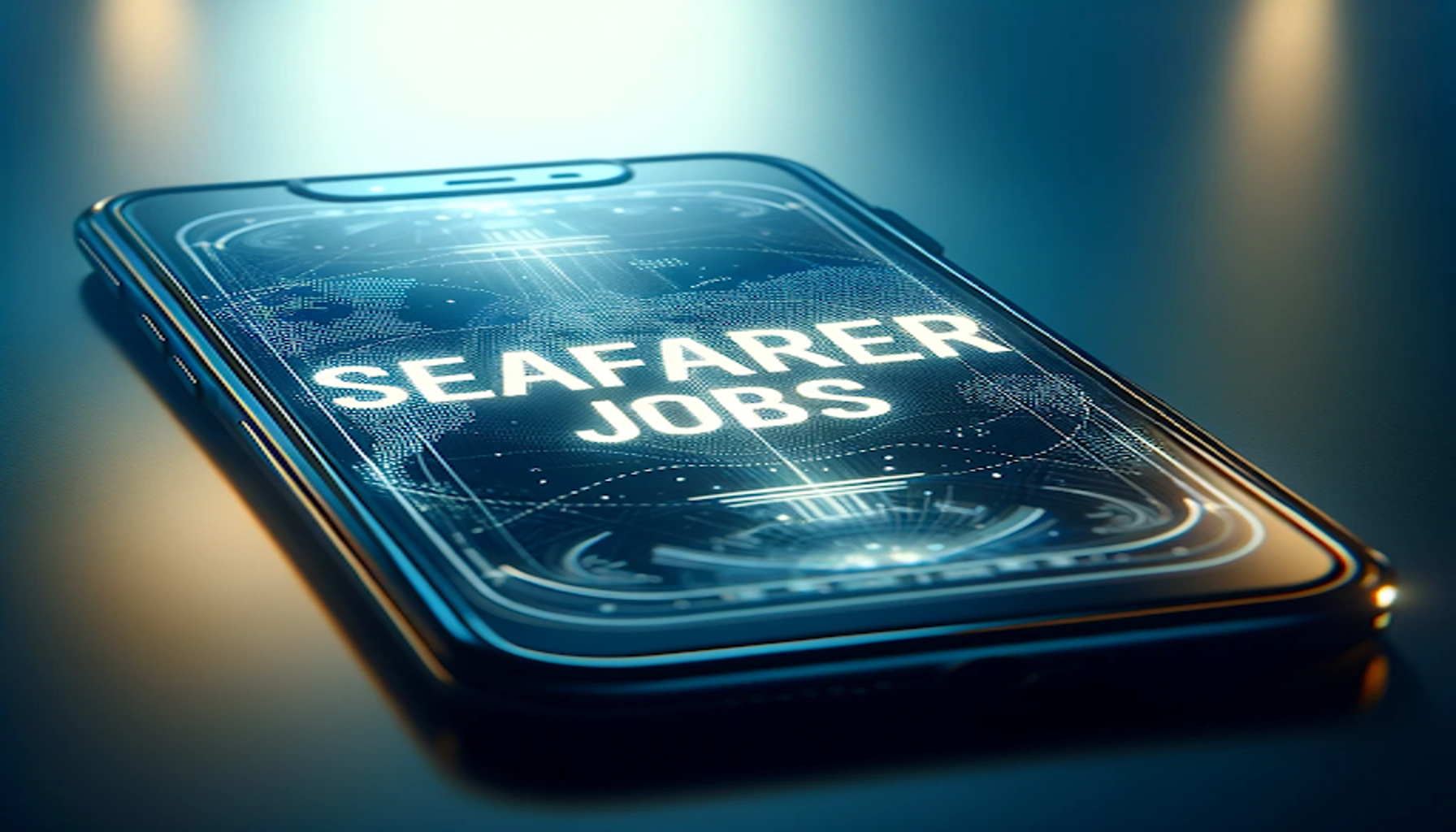
FAQs About Maritime
How do you say 'maritime' in different languages?
Here are some translations:
- Spanish: marítimo
- French: maritime
- German: maritim
- Italian: marittimo
- Croatian: pomorski
What's the difference between marine and maritime?
- Maritime relates to human activity at sea—shipping, naval affairs, logistics.
- Marine refers to the ocean environment—flora, fauna, and ecosystems.
Dictionary definitions to know
- Merriam-Webster: "Of or relating to navigation or commerce on the sea."
- Cambridge Dictionary: "Connected with human activity at sea."
These definitions, though simple, reflect the enduring versatility and importance of maritime.
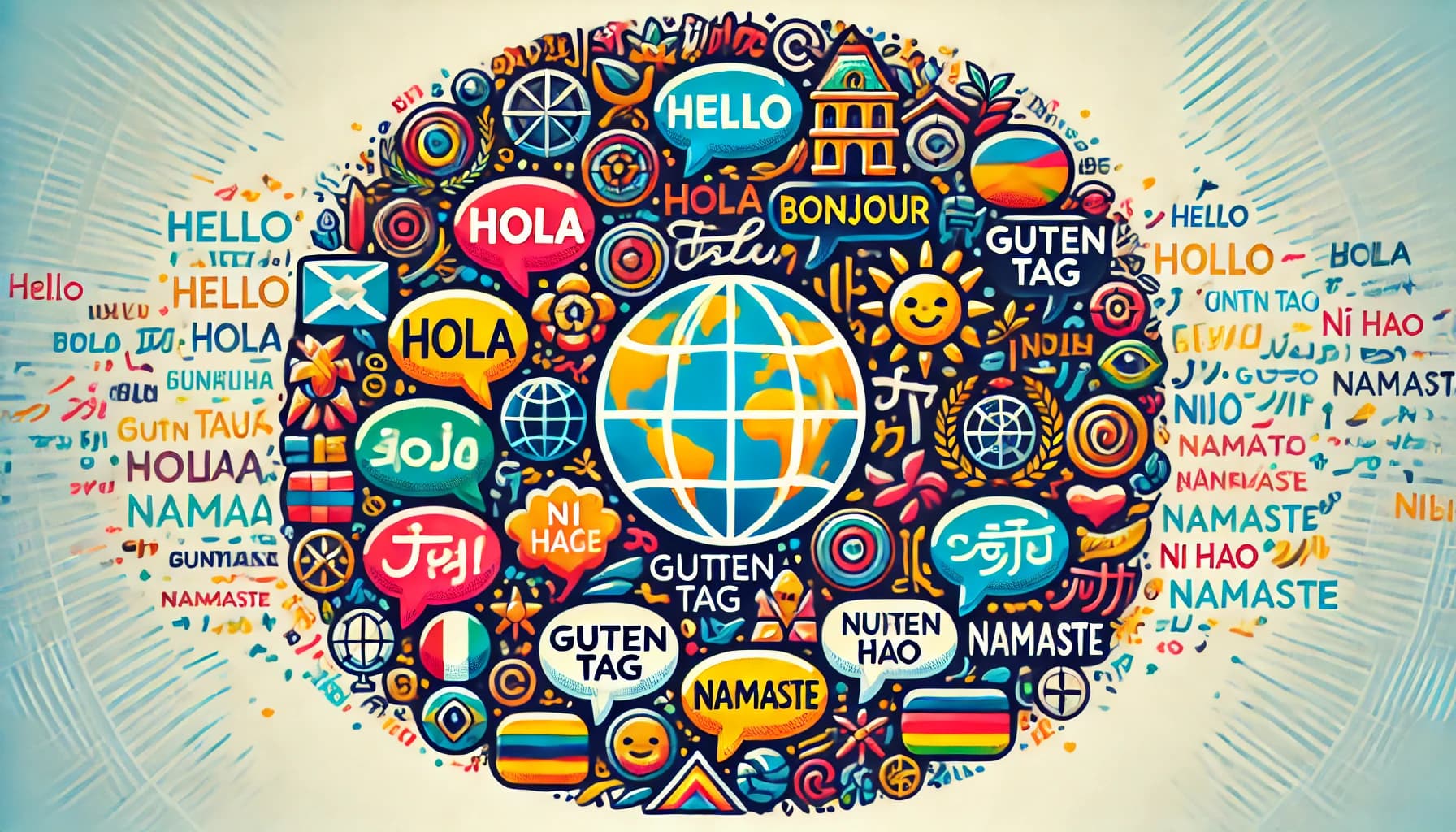
Conclusion
In 2025, maritime means more than just ships at sea—it’s a complex, innovative, and rapidly evolving ecosystem. With new technologies, sustainability mandates, and workforce challenges, the industry must continue to adapt.
Martide is proud to be part of that transformation. Whether you're hiring, managing a crew, or looking for your next contract at sea, our platform gives you the tools to succeed.
Explore Martide’s services on our website or download the app from Google Play for Android devices and from the App Store for iOS and we’ll look forward to helping you find your next great seafarer job set.
This blog post was originally published on May 6th 2021 and updated on May 18th 2025

Gavin Hirst
Gavin is a contributing writer to the Martide blog who covers topics ranging from life at sea to maritime crew management software. A native Brit who is now based in Auckland, NZ, Gavin is also an SEO expert and partner in a successful digital marketing agency that has offices in New Zealand and the United Kingdom.
New Zealand
